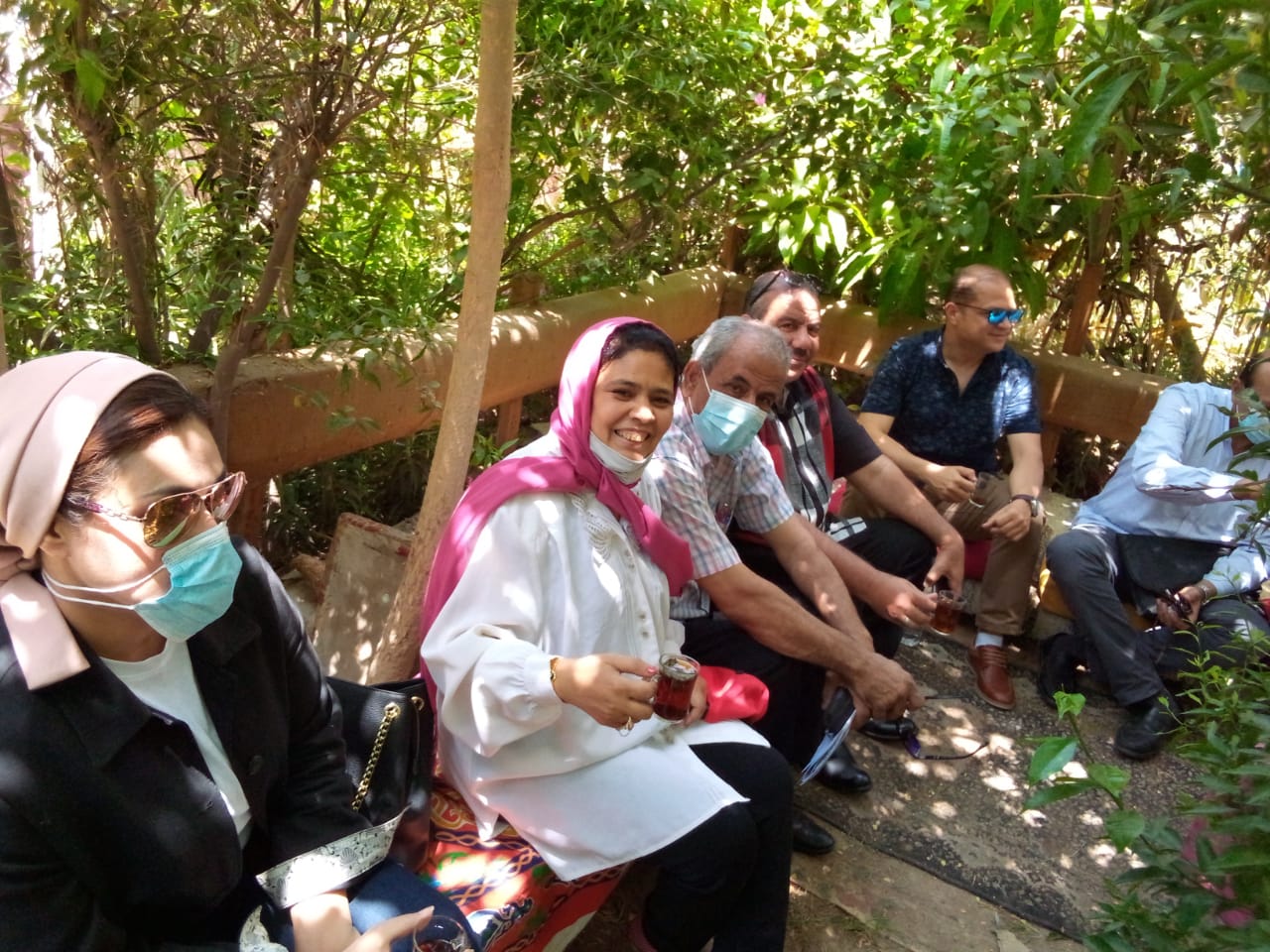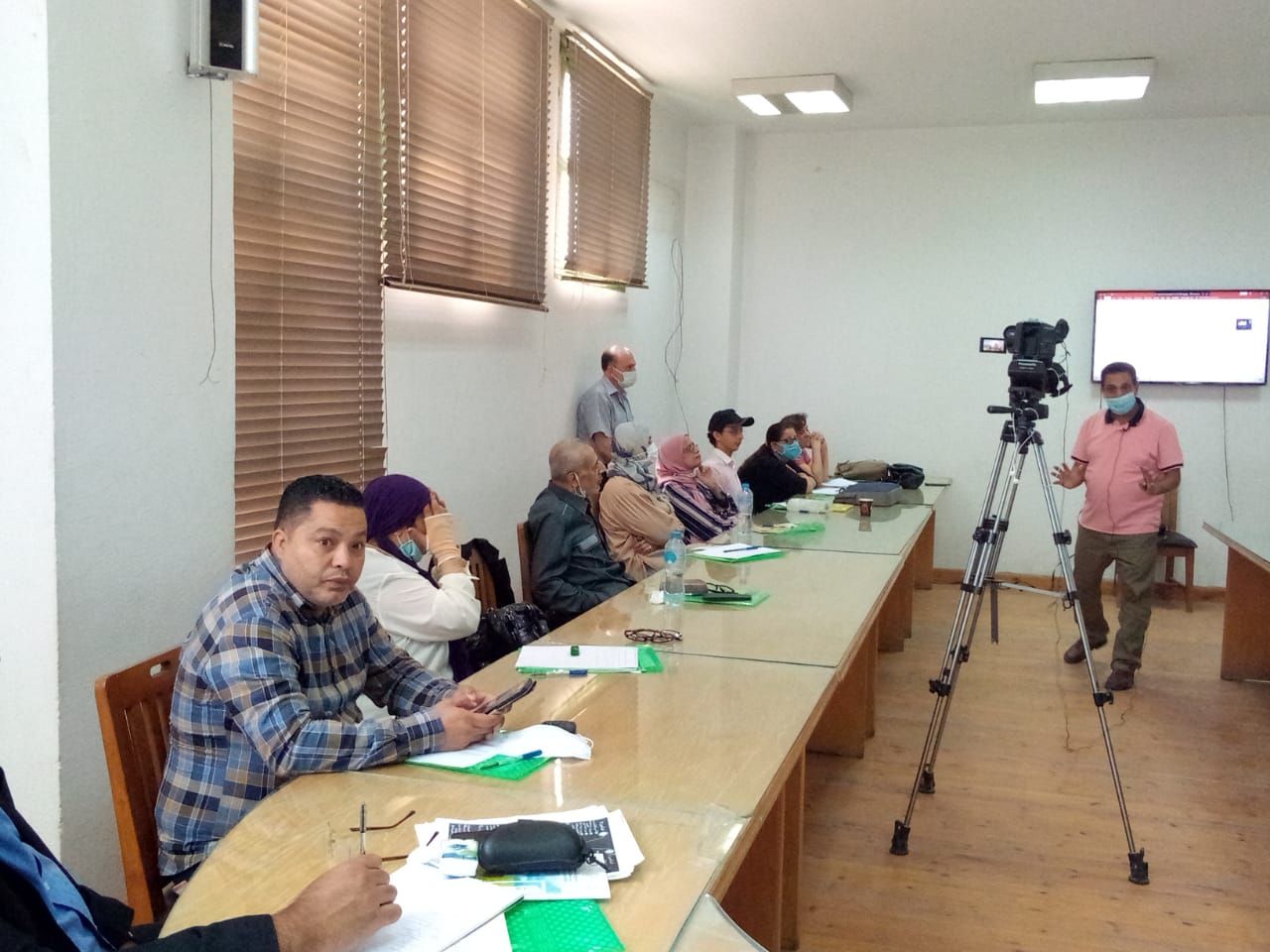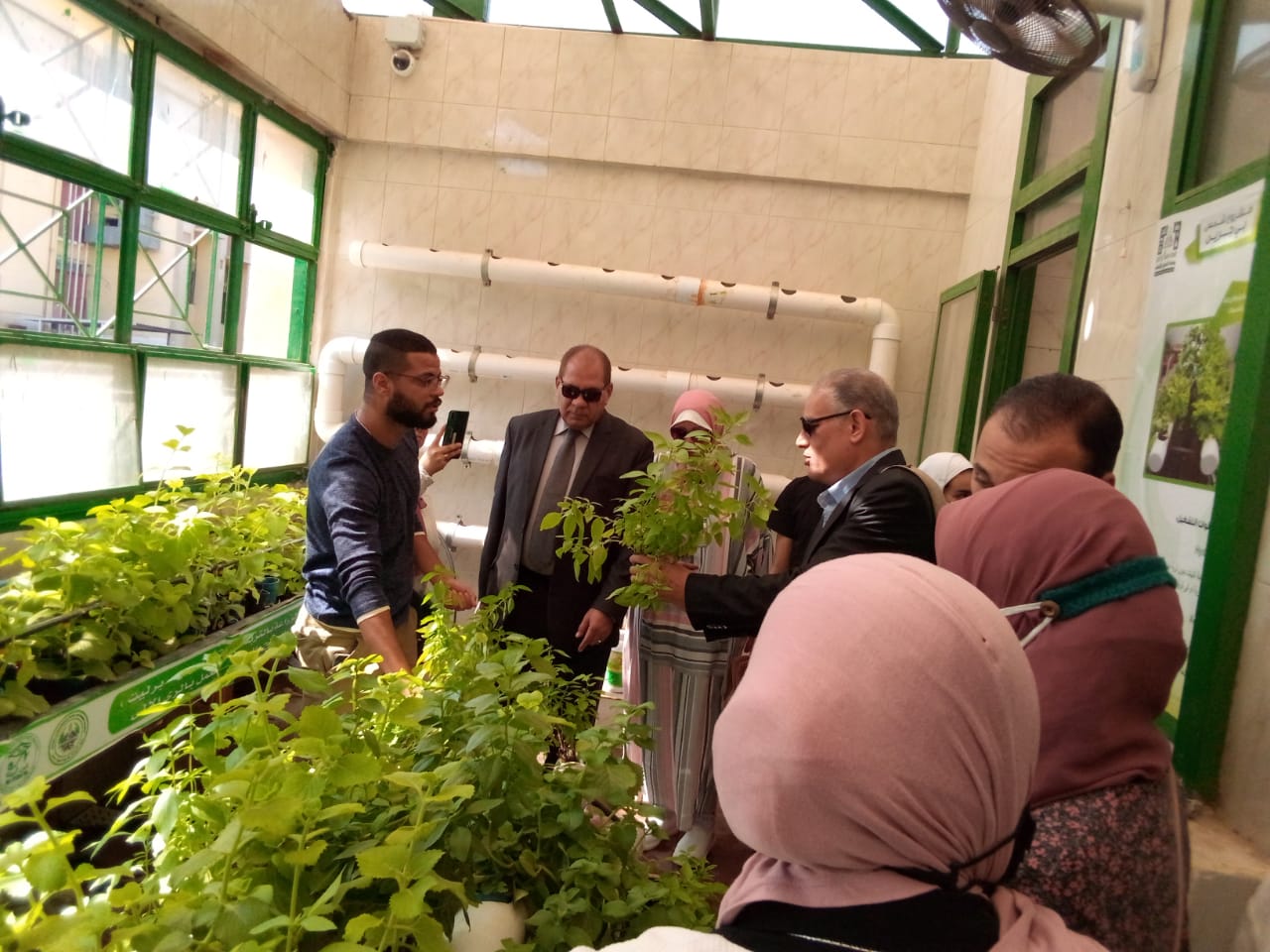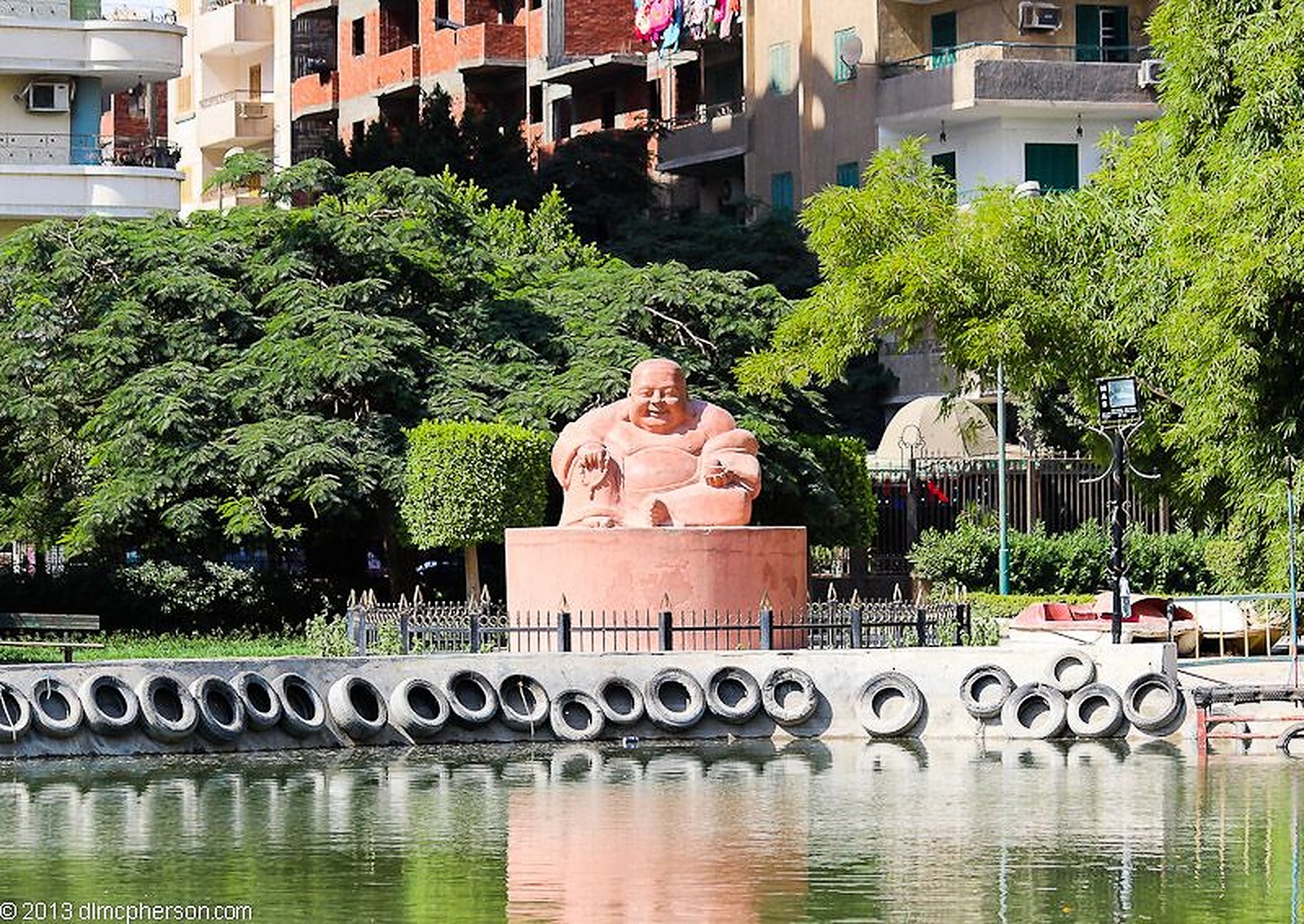Howeyda Ezzat and Heba Ezzat are like the two sisters from Disney’s ‘Frozen’. They are two sisters with one mind, one powerful in the political scene, the other is powerful among the people. Together they teamed up to protect the environment and build their own organization – the Japanese Association for Environmental Development in Helwan.
Growing up in the city of Helwan, they’ve often referred to their town as a ‘garden city’ due to the presence of parks and green spaces.The city contains large areas of tropical natural reserves and a botanical garden, and was once a leisure spot for tourists, with places like the Japanese garden and the King Farouk Museum being among the most popular places to visit in Greater Cairo.
Yet due to overpopulation and pollution, the city’s green colour faded away behind the greys and browns of polluted canals and slums with poor infrastructure. Residents of Helwan keep their windows closed and covered due to the fumes from industrial facilities, noisy traffic, and constant construction.
Though attention is often turned primarily to grand projects implemented by the government, there is also the work of people on the ground, striving to transform their own environments with the capacities they have. An organisation can not only persuade individuals to act, but also support the most vulnerable and remote areas to make small changes that can reduce their expenses.
Two sisters, one mind

Howeyda Ezzat, president of the Japanese Association for Environmental Development in Helwan, won 10,000 votes in 2008 to become a local council member. Then, she was promoted to lead the environment committee of the city of Helwan.
Since assuming the position, her knowledge on environmental development grew, and she sought the support and input of experts in the local council.
“When I began to learn more and educate myself about the environment, I decided that I wanted to take action and create a real impact in Helwan,” she says. “Because I was a woman, not many believed in me and I did not have any resources to carry out any activities, but I wanted to prove myself.”
Ezzat created a network that mapped each district in Helwan, and identified the key personalities that could influence their community on issues related to the environment.
“This network grew to be very strong, as we met regularly and created a schedule for all of our activities,” she adds.
Each influential person had to organise awareness activities for their own community and set up an awareness committee.
Howeyda’s sister, Heba, was extremely skilled in reaching the most remote areas in Helwan and establishing strong connections with the people in each district. Due to her skills in communication and networking, she helped the association become a key focal point for other international development organisations that are implementing environmental projects in remote areas.
“We’ve helped to bring a pool of people to several other organisations, such as the German development agency (GIZ), and that’s because we know how to simplify knowledge around the environment and climate change,” Heba Ezzat says.
“We raised awareness on avoiding plastic, organised clean-up events within each district, and encouraged recycling of wrapping materials and containers,” Howeyda Ezzat tells Egyptian Streets.
However, when she began to notice that her term as a local council member was slowly coming to an end, she teamed up with her sister to build her own association with the network and people she gained connections with over the years. Taking inspiration from the Japanese Garden in Helwan, the association now has a total of 13 people working as a board of directors, staff and volunteers.
“We started with education and awareness,” she explains. “We established a protocol with the Ministry of Environment to bring people and other associations to several training sessions and we worked on transferring the knowledge we gained to activities on-ground.”

“The training sessions had an impressive turnout, and we shared important information on ways to conserve water and electricity, such as recycling water, water reuse and keeping water temperature low to reduce wasted energy.”
With the current economic crisis, ordinary people are finding it increasingly necessary to be creative about saving on food and groceries, setting weekly or monthly grocery budgets and reusing one food item for several innovative recipes, she says.
“Wilted vegetables can be revived in cold water, or chopped and thrown into a soup,” she says. “There are so many other ways to reuse food waste.”
However, as it can be difficult to operate as an association with limited funding, Ezzat hopes that more partnerships are made with local organisations and associations so that they can also invest in water-efficient technologies and carry out more activities.
“For women or mothers that stay at home and do not go to work,” Ezzat explains, “we’ve organised tailoring activities for them so that they can produce and recycle their own pieces rather than have to constantly shop for more clothing items.”
Ezzat says that the association also organises several camps for children on saving water and protecting the environment, particularly the greenery in Helwan. “We invite plumbers and cleaners to share their knowledge and experiences, and tips on how to avoid leaks, fix a broken faucet and install timers in their bathrooms so that they can know when to stop wasting water.”

The average lifespan of a sewerage system is 20 to 30 years, but when it is polluted, it can only last 5 years, Ezzat says.
“We teach families and women about the importance of caring for the septic system and to not use toilets or the kitchen sink as trash cans, because this could reduce the lifespan of the sewerage system.”
The association also organised clean-ups at the Japanese Garden, where a large amount of waste was removed and gardens were planted instead in the place of , in addition to removing waste from the Al-Rashah and Al-Khashab canals.
“We want to send the message that Helwan is a city in nature; a green city. In the future, we are also planning to raise awareness on green building materials and improve the eco-friendliness of our buildings,” she adds. “We are still hoping to do so much more.”







Comment (1)
[…] Two Sisters, One Mind: Turning Helwan Into a Green City […]